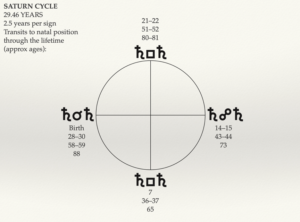To early humans, the circularity of the life cycle was a given. Evidence from archaeological findings and creation stories the world over suggests a universal world view which held that all living things, human beings included, follow ever-repeating cycles: birth leads to death leads to rebirth. This, in a nutshell, is the law of Pluto.
Before the sky-god religions (Judaism, Christianity and Islam) rose to dominance, a movement that began around five thousand years ago, spirituality was Nature-based. The Earth was seen as a Great Mother, and all living things were her children. When death came to a member of the tribe, it was the crone priestess who presided over last rites. It is said that she cradled the dying in her arms like a newborn child, crooning the funerary version of a lullaby. The pronouncement of anathema was the priestess' official statement that the dying person was about to cross the mortal threshold, and should prepare for the great surrender.
Ancient View of Death
To early humans, the circularity of the life cycle was a given. Evidence from archaeological findings and creation stories the world over suggests a universal world view which held that all living things, human beings included, follow ever-repeating cycles: birth leads to death leads to rebirth. This, in a nutshell, is the law of Pluto.
Before the sky-god religions (Judaism, Christianity and Islam) rose to dominance, a movement that began around


